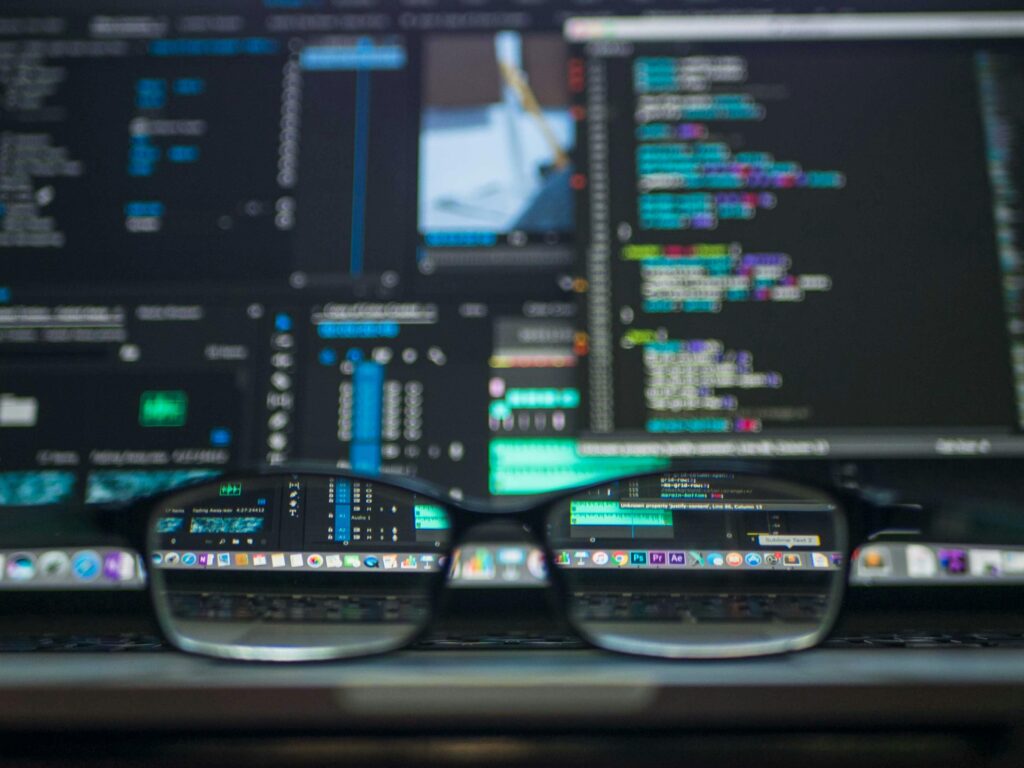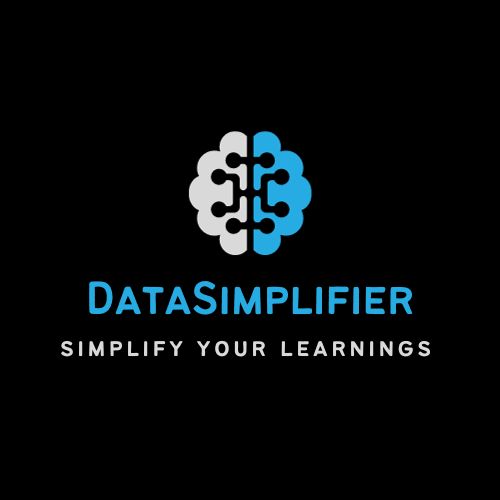Introduction
Artificial Intelligence (AI) is rapidly changing and transforming numerous industries worldwide, with software development at the top of this list. Just a few years ago, the concept of AI building software on its own seemed to be quite impossible, but today we are seeing AI systems that can write code, develop prototypes of software, and support developers in real-time.

This development brings up a number of questions for Indian students and working professionals in the tech field. Can AI create the software from scratch? Can AI replace software engineers? How much would it cost an individual to build such an AI system?(Can AI Build a Software)
These are some of the questions to be answered for India, in which technology and innovation can drive the economy significantly. Software engineering and related career paths like machine learning, data science, and cybersecurity are booming and attracting students from all over the country.
Knowing how AI is likely to develop into the future is key for those preparing for tech interviews or advancing their careers within this evolving landscape. It is in this sense that the guide aims to give an all-rounded view that will keep you informative and competitive in the AI era.
In this ultimate guide, we will discuss AI’s capability to build software, its current capabilities, limitations, and costs. We will also discuss the impact on software engineering jobs and the skills that will remain essential. By the end, you’ll have a clear understanding of AI’s role in shaping software engineering and practical insights to stay ahead in the tech industry.
AI in Software Development
Can AI Build Software?
Yes, AI systems can build software with some given parameters and the limitations present in building it. This is where open leader AI systems, particularly OpenAI’s Codex and the GitHub Copilot tools helping in writing human prompts-based codes, assist the generation of code in such a way.
These assist in automated similar kinds of repetitive tasks within some cases, helping even in the building of entire software programs suited for specific instructions in certain parameters. The tool demonstrated a workable bit of code lately. Some AI programs create a basic piece of working software inside 7 minutes, even though an enormous set and human oversight will support to drive development and get everything working like “assistant developer” roles.

For other uses such as the use of knowledge obtained through immense code stores for generation in code blocks, the detecting of errors and offering for optimization:. For example, Codex is what GitHub Copilot relies on, which is a model trained from public source code and will take in natural language prompts to output the relevant code. Although it is revolutionary, AI is only able to build applications that fall within certain lines. Complex applications with deep business logic, security considerations, and user interfaces still require a lot of human expertise.
Practical AI Tools and Applications in Software Development
There are many AI-powered tools currently revolutionizing the way developers design software. These include making the development process much faster and efficient. Here are a few of the popular AI tools:
Codex by OpenAI: Codex is the brain behind GitHub Copilot, which creates full functions of code from a prompt. This tool is quite handy for repetitive coding, debugging, and prototyping.
GitHub Copilot is entirely in-line with your development environment. It would complete lines of code and suggest functions, even correct syntax errors right there in the code.
DeepCode: A tool uses machine learning to detect security vulnerabilities in code, making the software safer and resilient.
TabNine: AI code completion in multiple programming languages.
These tools help developers automate the more mundane tasks so that they can focus on more complex coding activities, such as designing architectures or solving unique challenges that require a creative, human touch. In this way, AI is less of a replacement for software engineers and more of a productivity-boosting ally.
Limitations of AI in Software Creation
Although AI in software development has been rapidly progressing, it still has many limitations. It is not yet able to independently manage complex, enterprise-grade software projects. Though AI can generate code based on given parameters, building a large-scale software application involves a series of steps such as gathering requirements, designing architecture, conducting iterative testing, and ensuring compliance with legal and ethical guidelines.
For this reason, AI is lacking in context as well as creativity and, thus fails to offer a good solution for unprecedented or even unique problems.

For instance, an AI can definitely create workable code that will function just fine with the front-end of the e-commerce application, yet it will never have a sharp insight into developing an enjoyable user experience. Furthermore, AI mostly operates on ready-made codebases and thinks in terms of what’s already there; hence, its innovative abilities are weak.
AI, therefore best stands to act as a coding assistant to the human developers rather than a replacement in software creation.
Impact of AI on Software Engineering Jobs
Will AI Make Software Engineers Obsolete?
It’s a very critical question in the tech industry, and the answer is complex. AI will probably change the nature of software engineering jobs instead of eliminating them. In fact, AI can do many things that were formerly time-consuming, but human creativity, critical thinking, or innovation cannot be substituted by AI, which is essential for advanced software development.
Industry experts think AI will be an enabler that can take away those mundane, rule-based work that has been typical for software engineering, leaving time and mind space to strategy and creativity in a project.
So, less time will be spent on debugging, testing, and code optimization while more time will be utilized in the designing of architecture, systems, or improving the user experience, all very human-intensive. According to studies, jobs that involve interpersonal skills, decision-making, and problem-solving will be less likely to be taken over by AI since these are still out of the reach of AI.
Skills That Will Keep Software Engineers Relevant
As AI continues to become more integral in software development, those things that make human developers unique will become more valuable. Here are a few:
Problem-solving and critical thinking: Tackling new problems and designing solutions that are efficient is something beyond which cannot be replaced. While AI can execute, it’s the human who’ll always solve problems.
Creativity and innovation: Software engineers who produce different user interfaces with engaging experiences and innovative features will always be valuable.
AI and Data Science Knowledge: This would keep the software engineers on better integration of AI tools with relevance in an industry more AI-enhanced. Interpersonal Skills and Collaboration: Building and maintaining software would require effective collaboration by means of diverse teams and various stakeholders, which cannot be done by AI.
Upskilling in all these areas would be fundamental for software engineers who should succeed in this AI-infused environment. Many tech professionals in India are seeking certifications and training in the field of AI, data science, and related sectors to stay competitive.
Costs of Building AI Systems
Know the Cost
The development of an AI system also requires lots of resources from data acquisition and processing to development and maintenance. In an AI-powered software project, the cost can range from very low to incredibly high in dependence on the complexity, scope, and intended scale of the system.
Cost Factors in AI Development:
Data Collection and Processing: It is the initial stage with large amounts of data gathering and cleaning, which is costly. AI models require significant amounts of quality data to perform well.
Cloud Computing and Storage: The AI needs a huge amount of computation as well as storage which can be served on the cloud by various platforms like AWS, Google Cloud, as well as Azure, with only usage fees.
Developmental and Manpower Costs: AI necessitates well-trained developers as well as data scientists as well as engineers who possess the competency to train apt models to be deployed.
Test and Maintenance: Post-construction, AI models need continued testing, monitoring as well as update to be practical especially in dynamic systems.
For example, developing an AI-powered small chatbot for applications like customer services would cost just a few lakh rupees because the requirement is simple natural language processing. However, developing a robust AI-driven system for predictive analytics or even making autonomous software development could easily run into several crores, depending on the costs of high data acquisition costs or special hardware.

In India, companies like Haptik and Wysa invested huge amounts in the development of AI systems-particularly on customer service and mental health care. For small startups or solo players, platforms such as TensorFlow, PyTorch, and AWS AI services provide solutions that are more affordable, scalable, thus allowing even smaller-budget players to integrate AI within budget limits.
Conclusion
AI has indeed changed the face of the software development industry because it will make coding, testing, and debugging faster. Examples of tools that can ease developing tasks and make them more productive are Codex and GitHub Copilot. The complexity of big projects, however, requires imagination and experience, which still can only be done by humans. So, in short, the future for software development engineers is bright because they will remain very indispensable since they will develop expertise in critical thinking, creativity, and how to integrate AI.
If you keep track of the latest novelties in AI and software development, as well as get job notifications – please do join our channels in Telegram, where you’ll find all the information and updates on the topics you are interested in the field of technology. The second benefit is that connected to the same kind of people, you will naturally remain competitive and up to date with such a highly changing environment.
Secret Message: Having read all this so far, we’d be more than glad to thank you by allowing you free entry into our paid telegram channel. So, if you’re interested, write your telegram handle down below and I shall provide you with the free invitation to access our group. The following includes very friendly support networks, quality knowledge tools free of cost, and an access hub for updates related to the new job openings that might be eligible for working in AI and software engineering.
Share the post with your friends

1 thought on “Can AI Build a Software? Discover the Future of Software Engineering at it’s best”